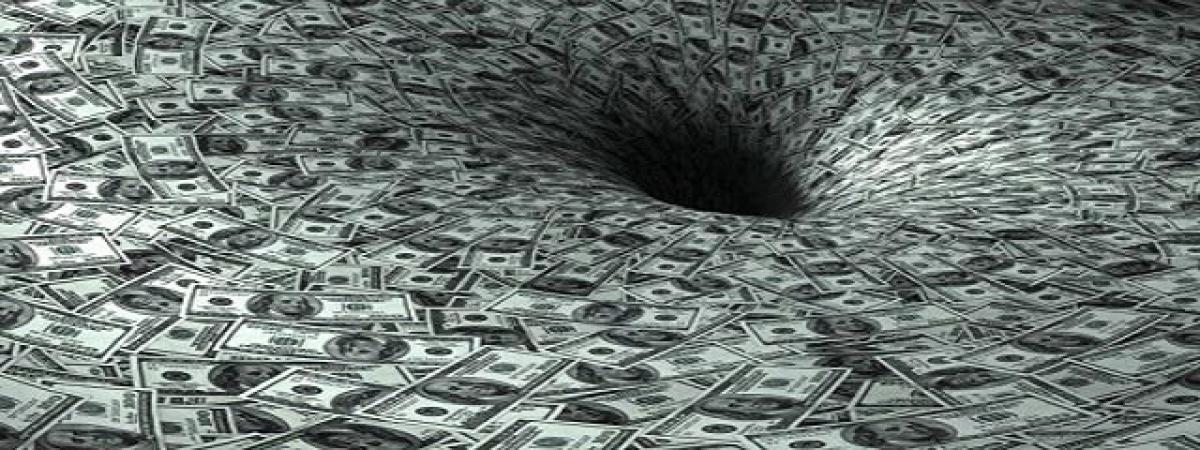Leaks that shook the world

The leak of over 11.5 million secret documents from Panama based-law firm Mossack Fonseca continues to shake political leaderships across the world.
The Panama Papers
Problem of black money stashed overseas has to be dealt with zero tolerance
The leak of over 11.5 million secret documents from Panama based-law firm Mossack Fonseca continues to shake political leaderships across the world. The data reveals secret information about offshore holdings of politicians, film actors, sports stars, businessmen and crime lords, and exposes the illegal practices to hide wealth, disguise sources of wealth and evade taxes.
Undeniably, the Panama revelation is larger than the US diplomatic cables exposed by Wiki Leaks in 2010 and the intelligence documents revealed by Edward Snowden in 2013. These were obtained by German newspaper Süddeutsche Zeitung from an anonymous source which shared them with the International Consortium of Investigative Journalists (ICIJ) which divulged these to its international partners including India’s Indian Express and UK’s BBC and Guardian.
The documents show the myriad ways in which the rich exploited secretive offshore tax regimes. Scandalously, already 12 national leaders are among 143 politicians, their families and close associates who have been using offshore tax havens. Predictably, the firm hasn’t discussed any specific cases of alleged wrongdoing, citing client confidentiality; instead it has defended its conduct by arguing it has complied with anti-money-laundering laws and carried out thorough diligence on all clients. Yet, the fact is that Mossack Fonseca helped the world’s rich and powerful hide their financial assets and dealings.
Notably, over 2,14,000 offshore entities appear in the leak connected to people in 200 countries including well-known politicians. Ironically, those who embraced anti-corruption platforms stand exposed in their hypocritical double standards. Already, the leak has brought down Iceland’s Prime Minister and raised questions about Russian President Vladimir Putin and his counterparts in Argentina and Ukraine, two Prime Ministers Pakistan’s Nawaz Sharif and UK’s David Cameron, Saudi Arabia’s King and senior Chinese politicians.
More shocking, the Panama papers point fingers at 500 Indians: two politicians, bureaucrats, industrialists and Bollywood celebrities. Interestingly, only a few American names have cropped up due to two reasons:
First, the Panama firm doesn't like taking on American clients. Secondly, such companies can be easily created in US states like Wyoming, Delaware and Nevada. There, they attract less attention than they might in Panama, known for shady financial deals and money laundering. Recall, till recently, Mossack Fonseca had operated in the shadows, but came under scrutiny as governments obtained partial leaks of its files and Germany and Brazil authorities began probing its practices.
Undoubtedly, the Panama Papers has done the world good as financial records reveal the global array of crime and corruption. But this is only the tip of the iceberg as Mossack Fonseca relates to just one offshore law firm even if it is the world’s fourth largest. Clearly, the papers throw up several issues. One, the need to get greater clarity on the issue of offshore remittances and investments; it is perfectly legal in many countries to park money in shadowy companies in tax havens today. This holds true for India, too.
Alas, lack of clarity in our country exists despite the Reserve Bank evolving guidelines on offshore remittances and investments since 2004. While procedures, like the Liberalized Remittance Scheme are specific to remittances utilised by residents to service various overseas requirements such as medical treatment and education, stipulations regarding tax avoidance are few. One of the few stipulations given by the government is that money cannot be sent to countries identified as “non-cooperative” by the global Financial Action Task Force.
Despite the Modi-led NDA government passing the Undisclosed Foreign Income and Assets (Imposition of Tax) Act, 2015, and providing a one-time compliance window to declare foreign assets and income, so far, these have yielded little by way of repatriation of transferred assets. Two, the investigation into the Panama Papers along-with scrutiny of accounts of Indians named in them should pave the way for further tightening of norms. However, only global tightening of norms would not be enough. As Mossack Fonseca is just one company.
Europe is also home to countries that provide banking secrecy which provide haven from taxes, such as Luxembourg, Switzerland and Andorra. Efforts should be taken to unearth activities in such wealthy countries also. In the long run, a global tax avoidance problem would require a coordinated response. There is an urgent need for more transparency in the movement of global finance capital. The problem of black money stashed overseas has to be dealt with both at the multilateral level through tightened capital flow norms and domestically through a zero tolerance approach to illegal transfers.








